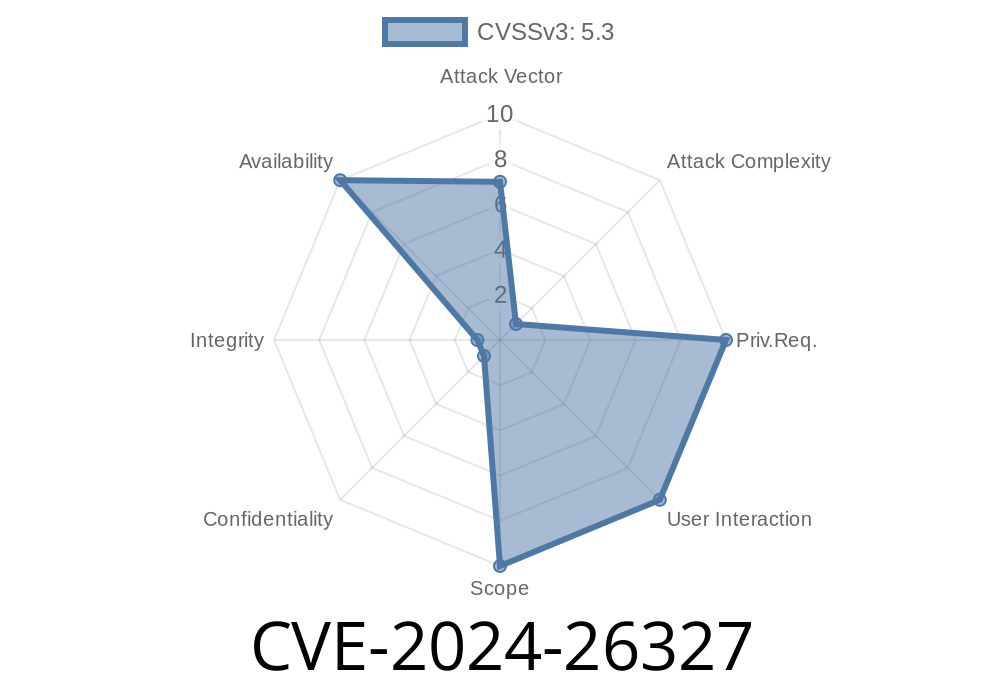QEMU is one of the most popular open-source machine emulators and virtualizers. It enables virtualization across various hardware platforms and is widely used for cloud, server, and desktop environments. Recently, a serious vulnerability was discovered in the way QEMU handles SR-IOV (Single Root I/O Virtualization) VF (Virtual Functions) registration in versions 7.1. through 8.2.1, tracked as CVE-2024-26327. This post will break down what happened, why it’s dangerous, and how an attacker could exploit it—all in simple terms, with code, practical details, and references.
Bug: Buffer overflow in QEMU's SR-IOV VF registration
- Files Affected: hw/pci/pcie_sriov.c
Versions: QEMU 7.1. to QEMU 8.2.1 (inclusive)
- Impact: Guest users can trigger arbitrary memory write, leading to possible code execution on the host system
What is SR-IOV and Why Does it Matter?
SR-IOV allows a single physical PCIe device (like a network card) to act as multiple separate devices, letting each VM ("guest") have its own virtual PCI device. This improves performance but also increases attack surface—especially if the virtualization software handles requests sloppily.
TotalVFs: How many VFs the hardware physically supports
The contract: The guest should not ask for more VFs in NumVFs than the hardware's TotalVFs. QEMU is supposed to enforce this.
The Vulnerability: Where QEMU Gets it Wrong
In QEMU, the vulnerable logic is in the register_vfs() function within hw/pci/pcie_sriov.c. What happens when a malicious guest says: "I want more VFs than are allowed"?
Instead of rejecting this, QEMU does not properly check the bounds, leading to an array (buffer) overflow. In other words, the guest can overwrite QEMU memory—potentially corrupting data, crashing QEMU, or even running malicious code.
Simplified Vulnerable Code
void register_vfs(SRIOVState *sriov, int num_vfs)
{
// 'sriov->vfs' is an array with size sriov->total_vfs
for (int i = ; i < num_vfs; i++) {
sriov->vfs[i] = ...; // <-- WRITES PAST THE END IF num_vfs > total_vfs
}
}
The problem: No check that num_vfs is less than or equal to sriov->total_vfs!
Exploitation: What Can Go Wrong?
By supplying a NumVFs greater than TotalVFs, a guest user can do what programmers call a "write out of bounds"—writing data outside the valid memory area. Depending on system memory layout and QEMU build:
Arbitrary Write: Modify sensitive memory inside QEMU, opening doors to privilege escalation.
- Possible Code Execution: Advanced attacks might execute arbitrary code, compromising the QEMU process—and, by extension, the host system.
Here's a highly simplified representation of how a guest OS could perform the attack
#define SRIOV_NUMVFS_OFFSET /* Register address for NumVFs */
#define SRIOV_TOTALVFS_OFFSET /* Register address for TotalVFs */
// Guest code writes an out-of-bounds value to NumVFs
void exploit_sriov(int qemu_fd) {
uint32_t total_vfs = 8; // Let's say QEMU sets this
uint32_t evil_num_vfs = 32; // Malicious value, > TotalVFs
// Map SR-IOV registers (e.g., via PCI config space)
pci_write_config(qemu_fd, SRIOV_TOTALVFS_OFFSET, total_vfs);
pci_write_config(qemu_fd, SRIOV_NUMVFS_OFFSET, evil_num_vfs);
// Now QEMU will write past the 'vfs' array in the host context
}
In real life, PCI configuration space access is more complex, but this shows the logic: overwrite NumVFs as a guest to trigger the QEMU bug.
The Fix
QEMU's maintainers fixed the bug quickly after it was reported. A proper fix checks that the incoming NumVFs does not exceed TotalVFs, aborting with an error if it does.
Fixed Code Sample
void register_vfs(SRIOVState *sriov, int num_vfs)
{
if (num_vfs > sriov->total_vfs) {
error_report("NumVFs (%d) greater than TotalVFs (%d)", num_vfs, sriov->total_vfs);
return;
}
for (int i = ; i < num_vfs; i++) {
sriov->vfs[i] = ...;
}
}
Mitigation Steps
- Upgrade QEMU to 8.2.2+ or to any version patched after February 2024 (see upstream patch).
References and Further Reading
- QEMU Security Advisory: CVE-2024-26327
- Upstream QEMU Patch Commit
- NVD Entry for CVE-2024-26327
- SR-IOV Background (Wikipedia)
Simple Takeaway
If you run QEMU with SR-IOV support, upgrade now to stay protected from this buffer overflow risk. Never trust unvetted guests—especially with hardware features like SR-IOV that bridge the guest-host security boundary!
If you found this break down helpful, let me know or share with your team to raise awareness!
*All code above is for educational illustration only. Don't attack systems you don't own.*
Timeline
Published on: 02/19/2024 05:15:22 UTC
Last modified on: 07/03/2024 01:49:38 UTC
